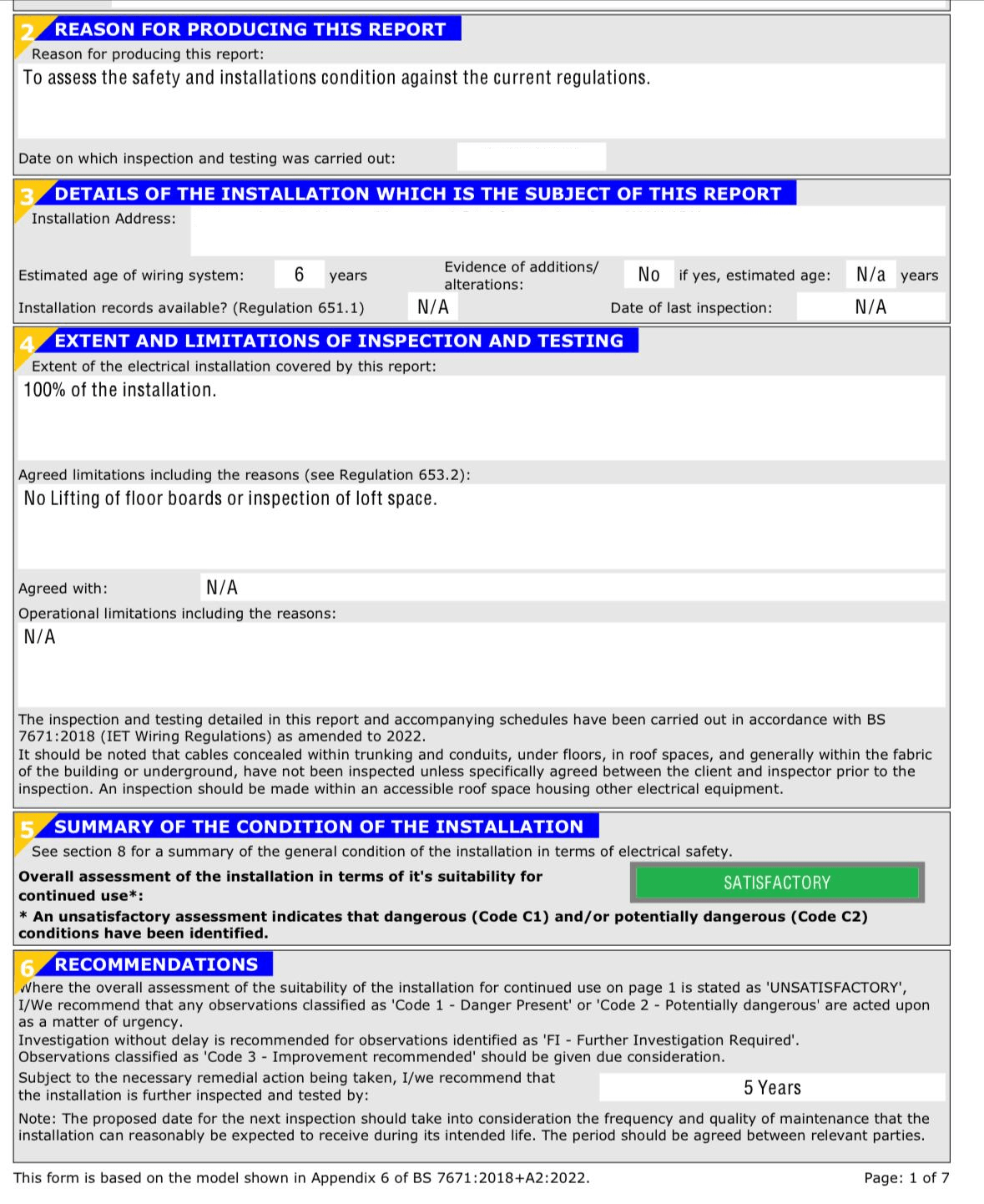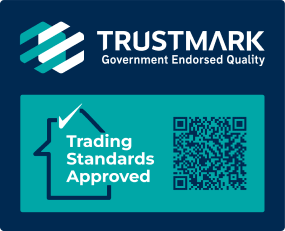Electrical Installation Condition Report Services for Your Property.
Electrical Installation Condition Reporting
What Is an Electrical Installation Certificate
Electrical certifications play a crucial role in ensuring the safety and compliance of electrical installations in the UK. These certifications are essential for protecting occupants and properties from electrical hazards, as well as for demonstrating compliance with the law.
One of the key certifications in the UK is the Electrical Installation Certificate (EIC), which confirms that an electrical installation has been carried out in accordance with BS 7671 (IEE Wiring Regulations).
The EIC is required for all new installations and modifications, and its issuance by a qualified electrician signifies that the installation is safe and compliant. In this article, we will delve into the importance of electrical certifications, with a focus on the EIC and its significance in ensuring electrical safety in the UK.
What Is an Electrical Certification
Electrical certification refers to the process of verifying that electrical installations, appliances, or systems comply with relevant safety standards and regulations. This certification is essential for ensuring the safety of occupants and properties, as well as for demonstrating compliance with the law.
The primary purpose of electrical certification is to ensure that electrical installations are safe to use and do not pose a risk of fire, electric shock, or other hazards. By certifying that installations meet specific standards, these certifications help to protect individuals and properties from potential harm.
There are several types of electrical certifications, each serving a different purpose. The Electrical Installation Certificate (EIC) confirms that a new electrical installation complies with the BS 7671 (IEE Wiring Regulations). The Minor Electrical Installation Works Certificate (MEIWC) is used for minor works, while the Electrical Installation Condition Report (EICR) is used to assess the condition of existing installations. These certifications are essential for ensuring the safety and compliance of electrical installations in the UK.

The Electrical Installation Certification
The Electrical Installation Certificate (EIC) is a critical document in the UK that verifies the safety and compliance of an electrical installation with the BS 7671 (IEE Wiring Regulations). This certificate is issued by a qualified electrician who has inspected and tested the installation to ensure it meets the necessary standards.
The EIC contains detailed information about the electrical installation, including the address of the installation, details of the person or company responsible for the work, and a description of the installation itself. It also includes the results of the inspection and testing, along with any observations or recommendations made by the electrician.
One of the key roles of the EIC is to confirm compliance with the BS 7671 (IEE Wiring Regulations). These regulations set out the standards for electrical installations in the UK, ensuring they are safe and fit for purpose. By issuing an EIC, the electrician is certifying that the installation meets these standards.
Only a qualified electrician who is registered with a competent person scheme or approved by a government-approved scheme provider can issue an EIC. It is required for all new electrical installations, as well as for modifications or additions to existing installations. The EIC provides assurance that the electrical installation is safe and compliant with the relevant regulations.
How Does Electrical Certification Work?
The process of obtaining an electrical certification involves several key steps to ensure that the electrical installation is safe and compliant with regulations.
Firstly, a qualified electrician will conduct an inspection of the installation to assess its compliance with the BS 7671 (IEE Wiring Regulations). This inspection involves checking the design, construction, and condition of the installation to ensure it meets the required standards.
Following the inspection, the electrician will conduct a series of tests to verify the safety and functionality of the installation. These tests may include checking the continuity of circuits, insulation resistance, and the operation of protective devices.
Once the inspection and testing are complete, the electrician will issue the appropriate certification, such as an Electrical Installation Certificate (EIC) or Electrical Installation Condition Report (EICR), if the installation meets the required standards.
Thorough inspections are crucial in ensuring the safety and compliance of electrical installations. They help to identify any potential issues or hazards, allowing them to be addressed before they become a safety risk. By following these steps, electricians can ensure that electrical installations are safe, reliable, and compliant with regulations.
Requirements for Electrical Certifications
To issue electrical certifications in the UK, electricians must hold relevant qualifications and certifications. They typically need to be registered with a competent person scheme or approved by a government-approved scheme provider. This ensures that they have the necessary skills and knowledge to carry out electrical work safely and in compliance with regulations.
Electricians must also adhere to specific standards and regulations when issuing certifications. For example, the BS 7671 (IEE Wiring Regulations) sets out the standards for electrical installations in the UK, and certifications must confirm compliance with these regulations.
Ongoing training and education are crucial for electricians to stay up-to-date with the latest regulations and technologies. This ensures that they can continue to provide safe and compliant electrical installations and certifications.
Importance of Electrical Certifications
Electrical certifications play a crucial role in ensuring the safety of occupants and properties. By certifying that electrical installations meet the necessary standards, these certifications help to protect against the risk of fire, electric shock, and other hazards.
There are also legal requirements for electrical certifications. In the UK, the Electricity at Work Regulations 1989 require that all electrical installations are maintained in a safe condition, and certifications demonstrate compliance with these regulations. Failure to comply can result in legal consequences, including fines and prosecution.
Certifications also add value to properties by providing assurance to buyers, renters, and insurers that the electrical installation is safe and compliant. This can increase the value of the property and reduce insurance premiums.
To conclude, electrical certifications are essential for ensuring the safety and compliance of electrical installations in the UK. By adhering to qualifications, standards, and regulations, electricians can provide certifications that protect occupants and properties and add value to properties. It is crucial for all stakeholders to prioritize certifications for safety and compliance.
Classification Codes
The EICR assesses the competency of your electrics by three categories. The Electrical Installation Condition Report is not a simple pass or fail, so much as an informative record of all your electrical equipment and circuits and whether the system is at a safety risk. The three categories are as follows:
🔴C1 – There is a danger present, risk of injury and will need immediate attention and remedial action.
🟡C2 – There is potential danger and advises urgent attention and remedial action.
🟢C3 – That there is no danger but an improvement of the electrical system is recommended.
It is our recommendation that you get your home checked for electrical safety every 10 years if it is an owner occupied home or every 5 years if it is a rented home. If you live in a caravan then you should get the periodic inspection done every 3 years. If you live in a home that has swimming pool, it will require an individual Electrical Installation Condition Report — EICR which will be valid for only one year.
Considering the sensitive nature of periodic inspections, Complete EPC has employed only certified and properly trained staff to inspect the electrical condition of your home. Once our staff has explored all the necessary areas of your home you will be assigned Electrical Installation Condition Report — EICR detailing their complete findings. You can also trust any reports presented to you, by landlord for example, which were made by Complete EPC because our reports are famous for portraying the true condition of your home.
EICR Electrical Quote

- We Are Here To Help You 0800 917 4026
- Buy Securely Online with PayPal
- Read Genuine Customer Reviews
- Trustmark™ Trading Standard Approved
Get Your Electrical Installation Condition Report Quote:
(LONDON ONLY)
"*" indicates required fields




